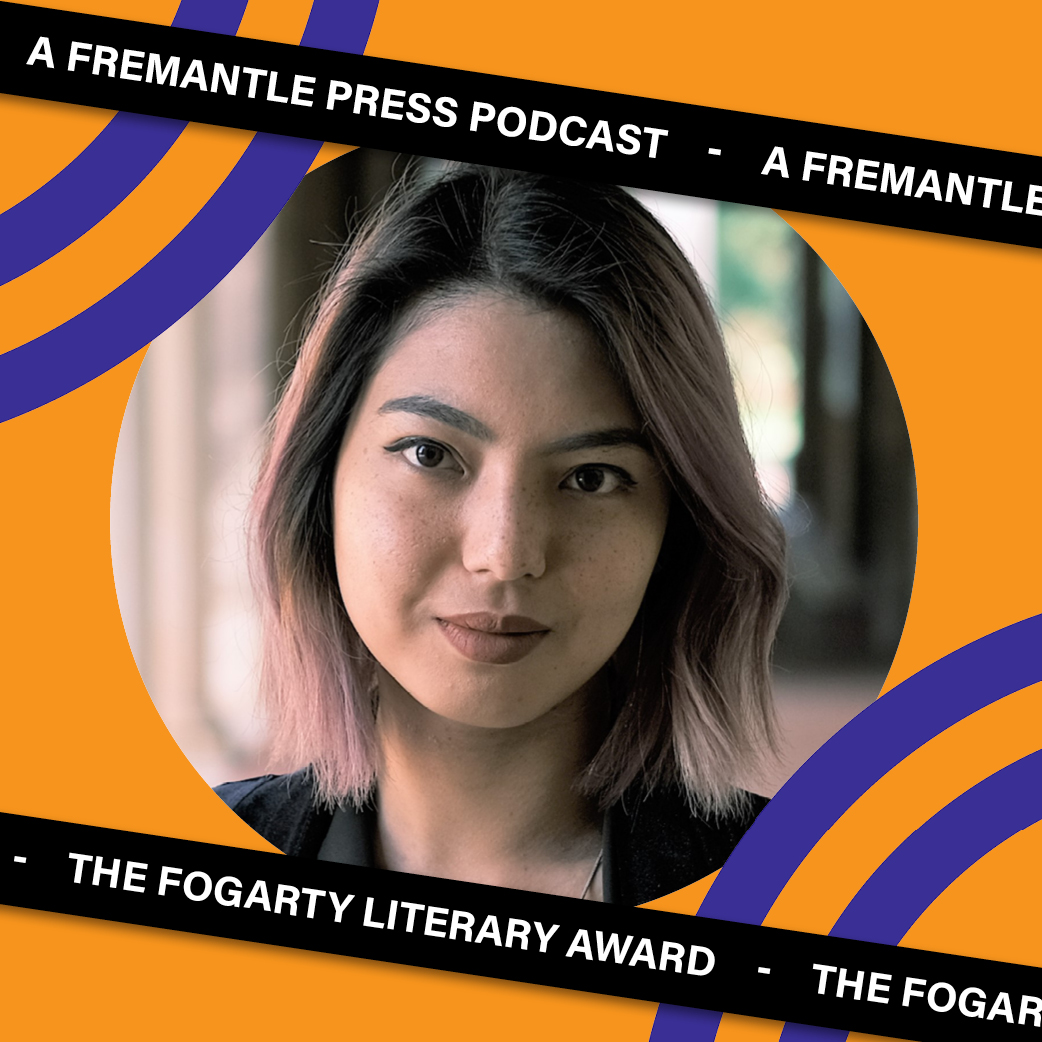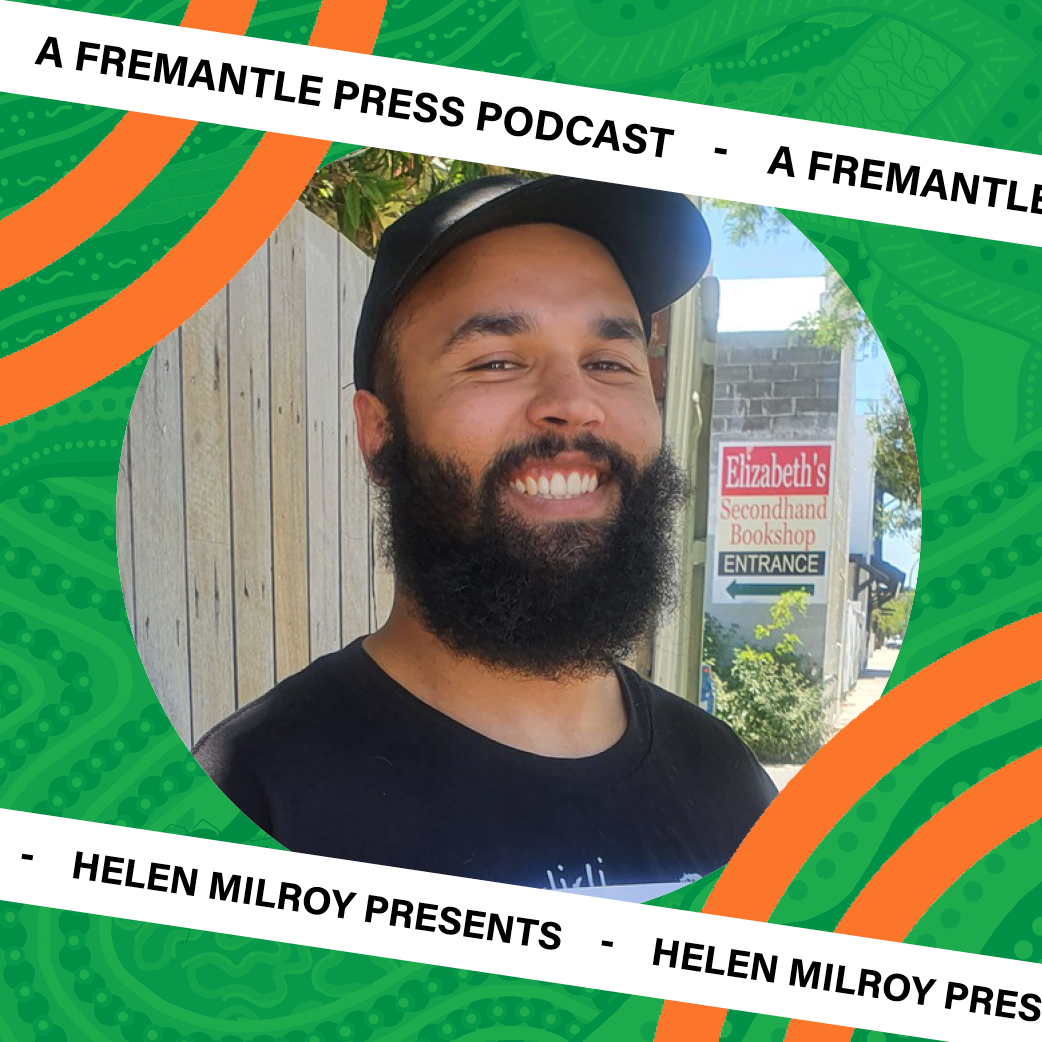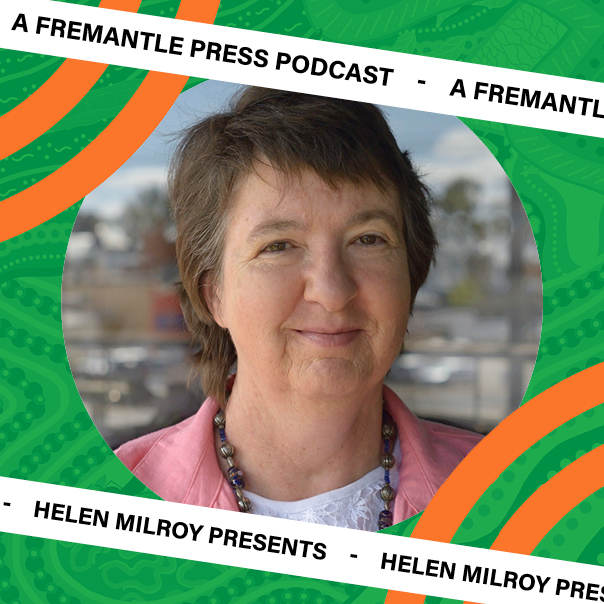Episode Transcript
[00:00:09] Speaker A: Hello and welcome to the Fogarty Literary Award podcast.
Today we are recording on Wolylup in Whadjuk Nyoongar Buja, and I'd like to acknowledge our first storytellers along with Noongar elders past and present.
My name is Kathryn Alam. In 2023, I won the Fogarty Literary Award for my novel, the Skeleton House.
The Fogarty Literary Award is proudly sponsored by the Fogarty Foundation, Fremantle Press and the center for Stories, all local, not for profit organizations providing crucial support for local writers and for Western Australia's literacy and education projects. The biennial prize is awarded to an unpublished manuscript by a young Western Australian author.
I can't believe that I was one of these shortlisted writers on the other side of the microphone just two years ago. It's a privilege to be your host today and introduce the newest members of the Fogarty Literary cohort.
Today's guest is Seth Malachari with Boyfriends.
But first, I'm here with Georgia Richter, publisher at Fremantle Press.
[00:01:17] Speaker B: Boyfriends is a lot of fun and it's a really heartwarming novel. It's got, I think, just the right amount of young adult angst, new love and also some very hot characters in it. But Seth Malachari has told it in a way that feels real rather than sugary sweet. And they've got an unadorned kind of writing style, and they have a really good instinct for the right level of adjectives and descriptions and so forth. And that style invites the reader straight into the story.
For me, a bonus angle is the reality TV show setting. And as I read, I knew for sure that this was the kind of reality TV show I'd like to tune into.
For me, this work is positive in a way that quietly and steadily affirms that books featuring queer characters are allowed to have happy endings too.
[00:02:04] Speaker A: It sounds like a very poetic balance, very subtle.
Seth Malachari is a non binary trans masculine author and editor living in Dianella, Western Australia.
He edited the anthology An Unexpected party, Fremantle Press, 2023, featuring stories from emerging authors from the LGBTQIA community.
Their work has been published in various anthologies including Head Underwater 100 Micro Memoirs and Emergence SBS Emerging Writers Competition.
Seth is currently undertaking a Creative Writing PhD at UWA.
Congratulations on getting this far.
[00:02:48] Speaker C: Thank you for having me.
[00:02:50] Speaker A: If you win, you'll receive a $20,000 cash prize. How will that money potentially change your writing career?
[00:02:56] Speaker C: A really important part of my creative practice has always been to support other LGBTQIA writers. What I'd really like to do with the 20,000 and the center for Stories Fellowship is invest that back into the community.
I'd really love to run longer form writing courses, do writing retreats and set up mentorships, but those kind of things within the queer community are hard to do without external funding. Financial barriers are really significant for our community. This kind of money and the opportunities with Centre for Stories would really go a long way in to be able to make a sustainable practice in that area for me and for other queer writers that I could potentially reach with this work. So yeah, I'll probably spend a little bit on it of like a shopping spree at Rabble or something like that though it's just for a bit of fun.
[00:03:47] Speaker A: Absolutely.
[00:03:48] Speaker C: Treat myself as well.
[00:03:49] Speaker A: You would have to treat yourself.
I would love to hear a bit more about your manuscript. Could you just describe in your own words to our listeners what your manuscript's about?
[00:04:02] Speaker C: Yeah. Boyfriends is a second chance romance between two trans masculine guys in their like early something twenties called Joe, who's our main character, and Romy.
So Joe and Romy were best friends and then boyfriends and then exes.
And a year after their breakup, they're reunited on the set of a reality TV show called Boyfriends, which sends six trans masculine guys into the forest in Western Australia's south for a week to experience the boyhood they missed out on as as children.
So across that week, Joe kind of reflects on everything that went wrong with him and Romy, and he tries to find a way to make it right. Effy.
[00:04:49] Speaker A: Wow. Would you like to please share an excerpt?
[00:04:52] Speaker C: Yeah.
This section is from the very beginning.
It's in first person point of view from Joe's perspective.
We leapt from the cliff into the waiting sea. I let out a small gasp as gravity sucked us down, our free arms flapping like infant birds on impact. The pale green water embraced us, enveloping us in a soft, swirling hug.
We surfaced unharmed, though it took a moment for the air to fully inflate our lungs again.
Salt water burned my nose and throat.
Romy flicked his hair, sending an arc of water toward the orange sun.
That was terrifying, he said, but he was smiling.
The rush of it is like no other.
It's like giving in to that pull in your chest that wills you to jump. When you stand atop a tall building.
Some prehistoric call to flight or death perhaps, but fills you with life when you submit to it.
Jumping off a building is generally frowned upon due to the high likelihood of actual death.
Jumping into the arms of the sea, though, is exhilarating, cathartic you leave everything up there. On the cliff, Romy and I tread water, our legs tracing infinity signs, our hands pushing and pulling the water around us.
I sprayed a tiny plume of water into the air with my lips, like the world's most inefficient whale.
We both laughed, strong and loud, the sound ricocheting off the water and bouncing endlessly toward the curved horizon.
It was good to laugh again.
The anxiety of being here, not knowing what to expect, all dissipated the moment I touched the ocean.
Here we were just bodies floating on our backs. I arms and legs splayed like cartoon stars, Romy's fingers just out of reach of my own.
I shut my eyes as I felt every worry, every strain seep from my body. Under the watch of the cliffs, I wriggle my toes and swish my legs in and out, appreciating the weightlessness, the feeling of being there, being alive, being out in the sun with Romy and having nothing to do in that moment but exist.
I stick my belly up higher, the hairs on my stomach catching the soft light of dusk. I take a deep breath in, expand my lungs to full capacity, then exhale slowly, savoring the fresh air, so different to the smog of the city we have left behind.
[00:07:28] Speaker A: Beautiful. Your work is so full of light and hope. I wonder what your guiding principles are when you're writing for young adults.
[00:07:36] Speaker C: A lot of my work is. Is really more so guided by the principles of writing for trans people, regardless of their age. I think there is a lot of overlap, though, between writing for the trans community and writing for young people, you know, exploring similar themes of finding ourselves and coming of age and imagining futures, things like that. A lot of trans literature is very focused on the hardships of being trans, and it is hard to be trans.
We face a lot of discrimination, a lot of violence.
And I want with my writing to have stories of hope as well, accessible to trans people. I think it's really important that trans people have access to that kind of diversity in their storytelling so that they believe that that kind of life is accessible to them, that they can have a good life.
So a lot of my work explores things like love and community, that we deserve love as trans people, that we deserve to love ourselves, and that we're allowed to have fun and have adventures and be silly and be sexy, and those things are all valid parts of the trans experience.
I don't try and deny the hardships of being trans in my work, but my guiding principle is to bring hope, because it's kind of that that saying that you can't be what you can't see.
Trans people, if they only read narratives where it's full of trauma and violence, then that is the message that they're going to carry around with them. But if they have stories where there's hope and there's fun, then they can believe that that future is possible for themselves too.
[00:09:16] Speaker A: Yeah. That you can't be what you can't see. That's exactly what I was thinking as you were speaking, that, you know, everybody, every person deserves to see themselves in art and in literature and be able to see, see happy endings for themselves and understand their own self and their own communities better.
[00:09:35] Speaker C: Yeah. And to have romance and like, you know, in this book, trans people are the main character and the love interest and most of the supporting cast. And that's really rare, really rare in literature and it shouldn't be.
So that's what I wanted to bring to the world.
[00:09:50] Speaker A: Yeah. And also art and literature is supposed to be fun as well. We're supposed to enjoy it.
[00:09:54] Speaker C: Yeah.
[00:09:56] Speaker A: Amazing. We got a little snippet in your bio about your writing career, but what. Can you just describe a bit more of what that's looked like to date?
[00:10:05] Speaker C: Yeah, I've been writing and studying writing for like over a decade now.
I didn't really take my career seriously or believe I could have a career in writing until I was doing An Unexpected Party, which is the anthology that I edited with Fremantle Press in 2023.
Because suddenly I had people believing in me and believing in these stories that we were trying to tell, had the publishers believing in me. I had all these emerging writers from around Australia sending me their work and trusting me as their editor with that work.
And then when the book came out, probably the most significant thing for me is in terms of cementing my career has been the reader response. I've had like parents come up to me thanking me for creating this book for their trans teenagers. I've had like trans teenagers come up to me, barely saying anything, just kind of shaking because they were so nervous to ask me for autographs. And it was really sweet to see this impact.
And it made me really understand that one, this career is a viable option for me. You know, there is space for our stories, for queer stories and stories that are in that vein of more light hearted and fun and hopeful, but also that they're important because of what they do for the community, because of the impact they can have on the readers.
So after the success of that, it was kind of natural for me to set Myself, the challenge of riding a full length, which is what I've done here with boyfriends, to keep that momentum going because, yeah, I just truly believe that this is such important work that I kind of have to do it.
[00:11:52] Speaker A: You know, you mentioned momentum and when you get those boosts of confidence that the work you're doing is valued and it's valuable and it's reaching others and touching others, it really does give a push, doesn't it?
[00:12:05] Speaker C: Yeah, it's like writing is such a. You know, people talk about writing being a solo pursuit and it's isolating and it is when you're sitting at your desk writing, but it is a big community and stories, the whole point of storytelling is that we're trying to connect with people.
And seeing your stories impact people, it really does help you just believe in yourself that you can do this and you have to keep going.
[00:12:29] Speaker A: Yeah, I completely agree.
As we wrap up, is there anything else that you'd like to share with our listeners today?
[00:12:37] Speaker C: So I turn 35 next week, so I'm at the very. I love that I'm considered a young writer in the context of this award because that's not something. I really think of myself as being young anymore, but I am at the further end of that. So anyone who's listening, who is working on manuscripts or submitting to things on the younger end, there is a lot of time. I don't want people to compare themselves to where my career is at if they're still at those early stages. Because writing as a career, there is no timeline to it. It's ups and downs, it's random things happen. You face a lot of rejections. I get rejected all the time for things like stories, you know, that doesn't stop when you start publishing.
But if you believe in your stories, you believe that what you have to say is important and you love writing, you have to keep going.
It's like it's cliche to say, but your stories do matter, especially marginalized writers.
Your stories are really important and they matter. So keep going, keep writing and yeah, don't give up.
[00:13:44] Speaker A: That's a very beautiful, hopeful message to have a message to end on.
[00:13:47] Speaker C: I'm full of hope.
[00:13:48] Speaker A: Yeah, good, good. Well, thank you so much for being here and sharing more about your manuscript boyfriends.
Listeners, you can meet Seth Malachari at the 2025 Fogarty Literary Award announcement at Government House ball on Tuesday, 3rd of June. Tickets are free and available from the Fremantle Press website. I'm Katherine Allen and I look forward to joining you in our next Fogarty podcast.


